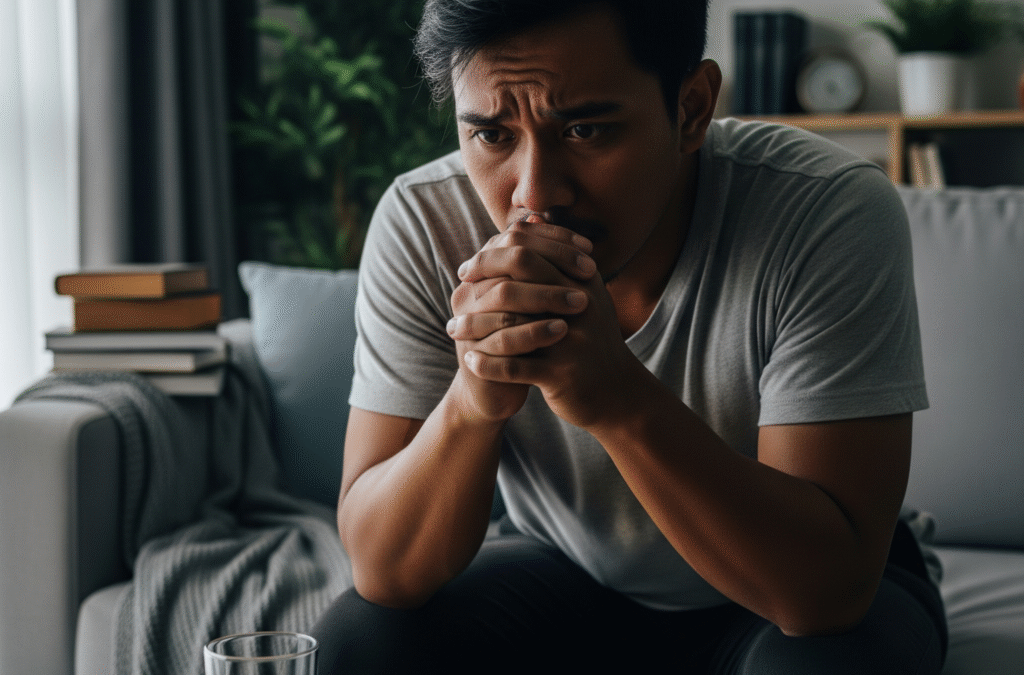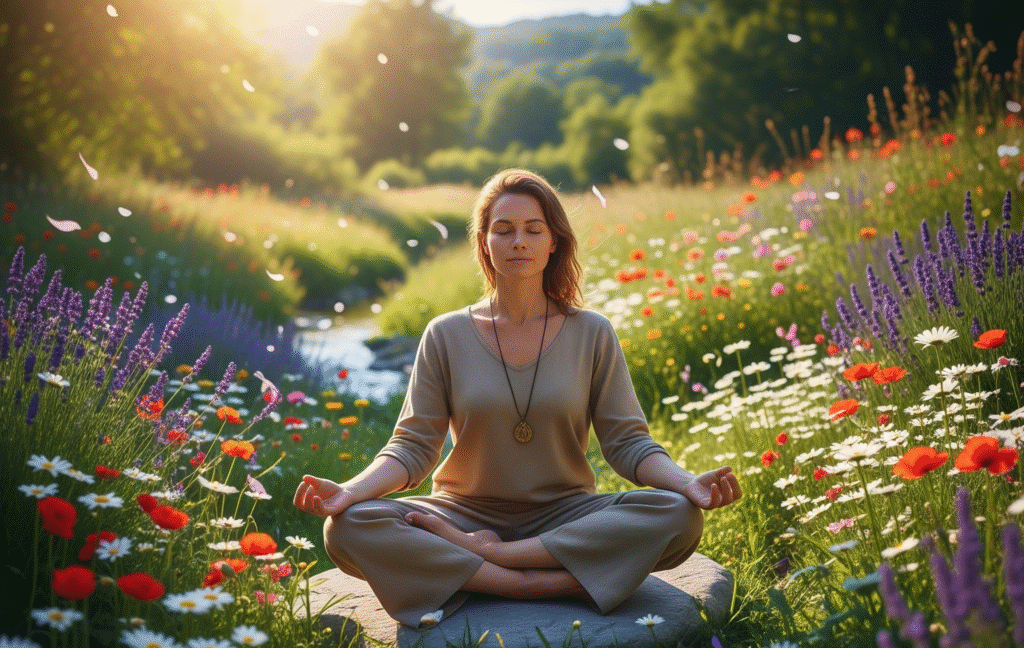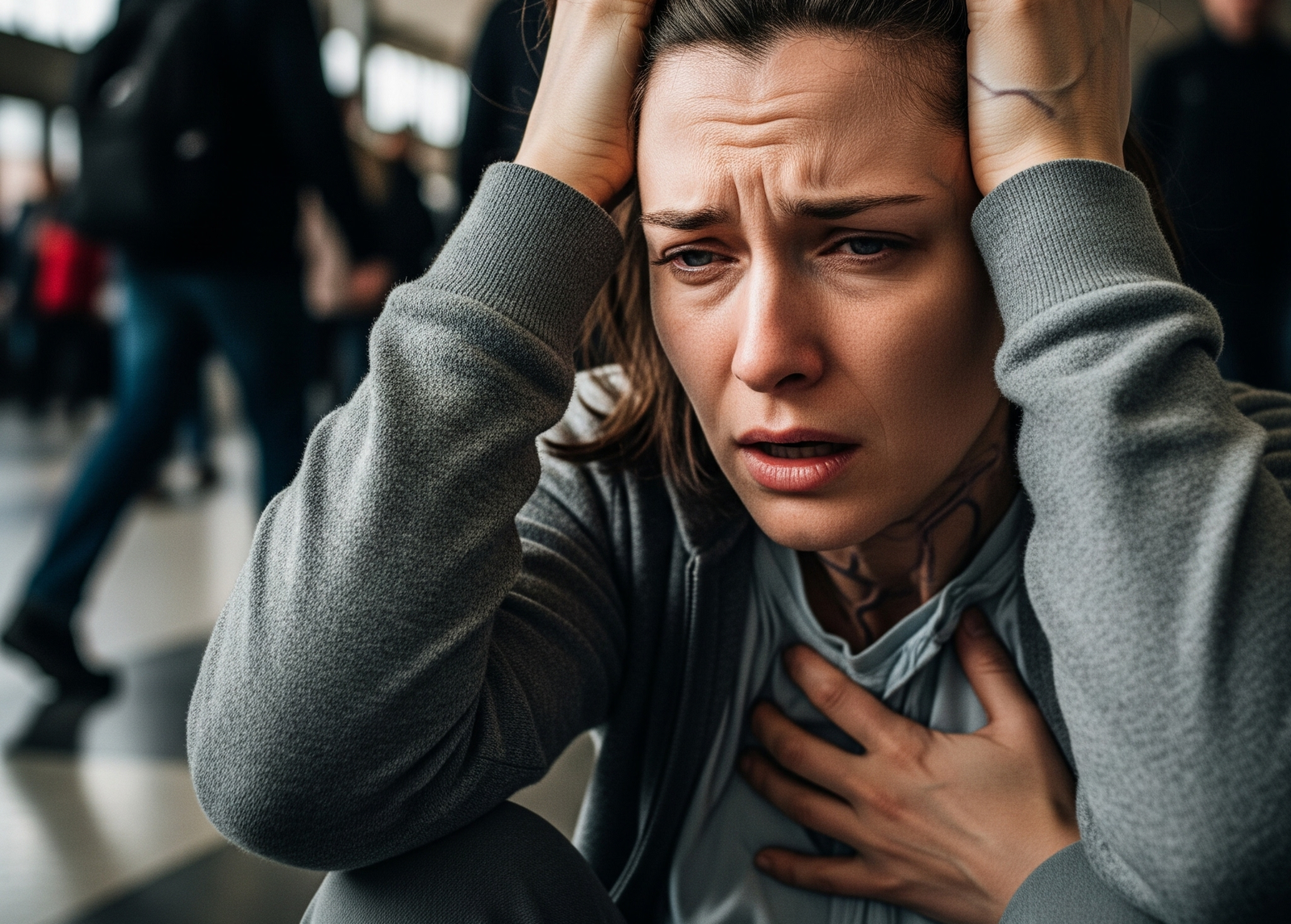Anxiety is the body’s natural response to stress. It often involves feelings of fear, worry, or unease about the future. While occasional anxiety is normal, persistent or severe anxiety may signal an underlying disorder such as:
- Generalized Anxiety Disorder (GAD)
- Panic Disorder
- Social Anxiety Disorder
- Phobia
We will explain what anxiety is, its main causes, common symptoms, and practical ways to manage it quickly and naturally.

Common Symptoms of Anxiety
- Restlessness or nervousness
- Racing heart or palpitations
- Sweating and trembling
- Difficulty concentrating
- Muscle tension
- Trouble sleeping (insomnia)
- Stomach problems (nausea, diarrhea, IBS-like symptoms)
What Causes Anxiety?
- Stressful life events (work, finances, relationships)
- Genetics and family history
- Brain chemistry imbalances (serotonin, dopamine, GABA)
- Medical conditions (thyroid problems, heart rhythm issues)
- Substance use (caffeine, alcohol, drugs)

Proven Strategies to Reduce Anxiety
Managing anxiety requires a combination of behavioural techniques, psychological therapies, and lifestyle changes. This can reduce anxiety attacks and lower overall anxiety levels.
- Cognitive Behavioral Therapy (CBT) : CBT, is one of the most effective treatments for anxiety. It works by helping people identify negative thought patterns and replace them with healthier, more balanced ways of thinking. Over time, this reduces worry, fear, and the physical symptoms of anxiety.
- Meditation and Mindfulness: These are powerful tools for calming both the mind and body. By practising mindfulness, you focus on the present moment instead of worrying about the future or dwelling on the past — two of the biggest triggers for anxiety. Regular meditation has been shown to reduce stress, lower anxiety levels, and improve overall emotional well-being. Even just a few minutes a day can help create a sense of calm and control.
- Physical Exercise: It is one of the most effective natural ways to lower anxiety. Exercise helps your body release endorphins — feel-good chemicals that improve mood and reduce stress. It also promotes relaxation by reducing muscle tension and calming the nervous system. Activities such as yoga, dance, running, or aerobic workouts have all been shown to reduce anxiety symptoms significantly.
- Aromatherapy for Short-Term Relief: Aromatherapy with essential oils can provide gentle, short-term relief from anxiety. Inhaling certain scents — such as lavender, chamomile, or sandalwood — has been shown in studies to help calm the mind and reduce anxious feelings. Aromatherapy isn’t a cure; it can be a helpful natural add-on to other anxiety management strategies.
- Healthy Lifestyle Habits for Long-Term Anxiety Control: Simple daily habits play a significant role in managing anxiety over the long term. Getting regular sleep, eating a balanced diet, and finding ways to reduce daily stress all support both mental and physical health. When your body is well-rested and nourished, it’s easier to stay calm and handle challenges without feeling overwhelmed.
- Quick Techniques to Calm Anxiety Fast: Sometimes anxiety strikes suddenly, and you need quick relief. Simple short-term techniques can interrupt an anxiety spiral and help restore calm within minutes such as deep breathing, listening to music, or talking with a friend can interrupt an anxiety spiral and restore calm.
When to See a Doctor
- Anxiety lasts longer than 6 months.
- Symptoms interfere with work, school, or relationships.
- Panic attacks occur frequently.
- Anxiety is linked with depression or thoughts of self-harm.
Anxiety is common and often manageable with lifestyle changes, natural remedies, and professional support when needed. The key is recognizing symptoms early and finding coping strategies that work for you.
Disclaimer: This article is for informational purposes only and should not replace professional medical advice. Please consult a doctor or mental health professional for personalized care.
Source:
You may also be interested in reading about Cancer


[…] Anxiety: Causes symptoms and proven strategies to reduce anxiety […]